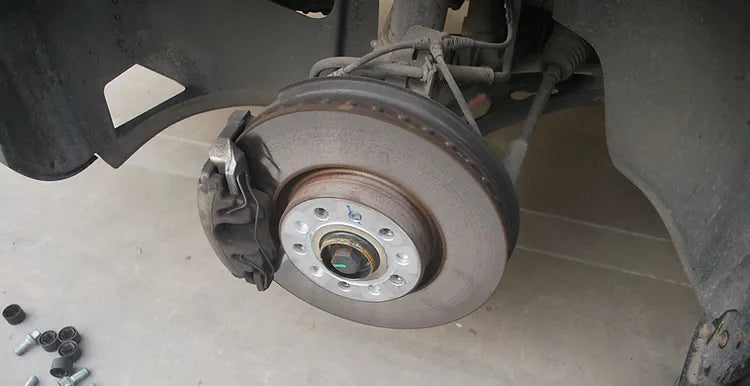Brake cleaner is a solvent-based cleaning solution used to remove contaminants from various brake components. It works by dissolving and removing dirt, oil, and other substances that can accumulate on brakes. It improves braking performance, extends brake life, and is easy to use. However, it can be harmful if inhaled, has environmental risks, and can cause corrosion on certain materials. It should be used safely and responsibly.
What is Brake Cleaner?
Brake cleaner is a solvent-based cleaning solution that is designed to remove contaminants from various brake components. The solution is composed of acetone, toluene, and other solvents that can dissolve dirt, oil, and other substances that can accumulate on brakes. Brake cleaner comes in aerosol spray cans or containers that get decanted into pressurized spay bottles.
What Does Brake Cleaner Do?
Brake cleaner is used to clean various brake components, including brake discs, calipers, pads, and drums. The cleaning solution helps remove contaminants that can affect the performance of the brake system. Contaminants such as brake dust, oil, and dirt can reduce the friction between the brake pads and discs or the brake shoes and the drum, resulting in decreased braking performance. By removing these contaminants, brake cleaner helps maintain optimal braking performance and can prevent premature brake wear.
How Does Brake Cleaner Work?
Brake cleaner works by dissolving and removing contaminants from brake components. The cleaning solution is composed of solvents that can dissolve dirt, oil, and other substances that can accumulate on brakes. When the cleaning solution is applied to the brake components, it dissolves the contaminants, which are then wiped away with a clean cloth or blown away with compressed air.
When Should You Use Brake Cleaner?
Brake cleaner should be used whenever the brake system is disassembled for maintenance or repair. This includes when brake pads or discs are replaced, when brake calipers are rebuilt and when brake shoes are replaced or adjusted. Brake cleaner can also be used as a general maintenance item to clean brake components during routine maintenance.
What Are the Benefits of Using Brake Cleaner?
Improved Braking Performance: Brake cleaner helps remove contaminants that can reduce the friction between the brake pads and disc. This results in improved braking performance.
Extends Brake Life: By maintaining optimal braking performance and preventing premature brake wear, brake cleaner can help extend the life of your brake components.
Easy to Use: Brake cleaner comes in an aerosol spray can, which allows for easy application and coverage.

What Are the Risks of Using Brake Cleaner?
While using brake cleaner offers many benefits, there are also some risks associated with its use. These include:
Health Risks: Brake cleaner is a solvent-based cleaning solution that can be harmful if inhaled. It is important to use it in a well-ventilated area, wear protective gloves and a mask.
Environmental Risks: Brake cleaner contains volatile organic compounds that can be harmful to the environment. When using brake cleaner, it is important to dispose of it properly and to avoid releasing it into the environment.
Corrosion Risks: While brake cleaner can help prevent corrosion on brake components, it can also cause corrosion on certain materials. It is important to use brake cleaner as directed and to avoid using it on materials that are not compatible with the cleaning solution.
Conclusion:
Brake cleaner plays a critical role in maintaining optimal braking performance by removing contaminants from various brake components. By using brake cleaner during routine maintenance and repair, you can help extend the life of your brake components and prevent premature brake wear. However, it is important to use brake cleaner safely and responsibly.


